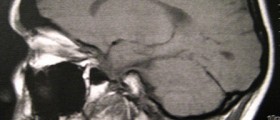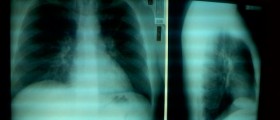
Genetic testing is the latest form of screening for potential genetic disorders by examining the DNA particles directly. There are many types of problems for which genetic testing is used. One such procedure is performed to identify a person who only carries a defected gene, but does not have any problems caused by it. Other tests are used to check for any deformities of a fetus during pregnancy, as well as any problems that a baby might develop after being born. Genetic testing is used to determine whether a person is likely to fall ill to Alzheimer’s or Huntington disease. Finally, forensic science also uses types of genetic testing for the purposes of identification. On average, everyone has two copies of every gene, one from the mother and another from the father, and it is estimated that the human genome has anywhere between 20 000 to 25 000 genes.
Types of Genetic Testing
Genetic testing is used to generate information about the chromosomes and genes at any point in a person’s life. For instance, testing of the newborn babies is done routinely to check for any problems that could be treated right away. Genetic testing is also used for the purpose of confirming or ruling out a diagnosis that is suspected based on some underlying symptoms. The results could influence the kind of treatment the person will get or the overall type of approach an individual will develop toward his/her health.
As mentioned earlier, every healthy person has two copies of each gene, so if a couple is, for instance, trying to get pregnant, genetic testing could be done to determine whether they are both carriers of a certain defective gene, which would increase the likelihood of their offspring inheriting that particular problem. Also, genetic testing is often used to screen for any problems developing in the fetus before birth, as well as in embryos for the purpose of in vitro fertilization. If an individual has a family member with an illness that is heritable, has no symptoms him or herself, but wants to know if there is a chance of developing the disorder, such a person could go through predictive genetic testing any time in life to find out. Genetic testing is also used for legal purposes as well as determining paternity of a person.
Medical Procedure
After the person decides to go through with a genetic test and gives consent, a medical professional will proceed by ordering the appropriate test. Testing is usually painless, performed by taking a sample of hair, saliva, blood, and the like. The sample is sent to a lab where it will be checked for specific proteins, chromosomes, and DNA changes, and the results will be returned to the person`s doctor or genetic counselor.
Interpreting the Results
Making sense of the genetic testing is not an easy task, and the health care professionals will look at the patient`s family and medical history as well as the reason for doing the test in the first place. If a test comes back positive, there has been a change in the nature of the gene, and chances are the person is a carrier of a certain disorder, or is predisposed to develop a condition later in life, or there may be more tests that have to be done.
The results from a genetic test cannot be used to predict the seriousness of an existing condition or say with certainty how high the risk for developing a problem actually is. On the other hand, if the test comes back negative there have not been any changes in the chromosomes, proteins or the person`s DNA. Consequently, the individual is not a carrier of a defected gene, not likely to fall ill to a genetic disorder, or the test may have missed a problem, and the medical examiner will advise additional testing to confirm the results.
Possible Risks Associated with Genetic Testing
The health risks of genetic testing are usually minimal as all that is required is a blood or a hair sample. On the other hand, people may find genetic testing financially unaffordable, emotionally too much to bear, or unwilling to deal with social consequences certain results could bring. Also, the information provided by this type of testing is fairly limited in a way that it cannot guarantee a person will develop a problem, or cannot predict the severity of the problem. As well, once the results come in there are many hereditary problems that cannot be treated.
Criticism
As with any medical or scientific issue, there are always critics who oppose a procedure, treatment, or the way it is conducted. When it comes to genetic testing, those who are against it usually focus on the fact that the results could be badly misinterpreted resulting in consequences of severe magnitude for the person involved.

















Your thoughts on this
Loading...